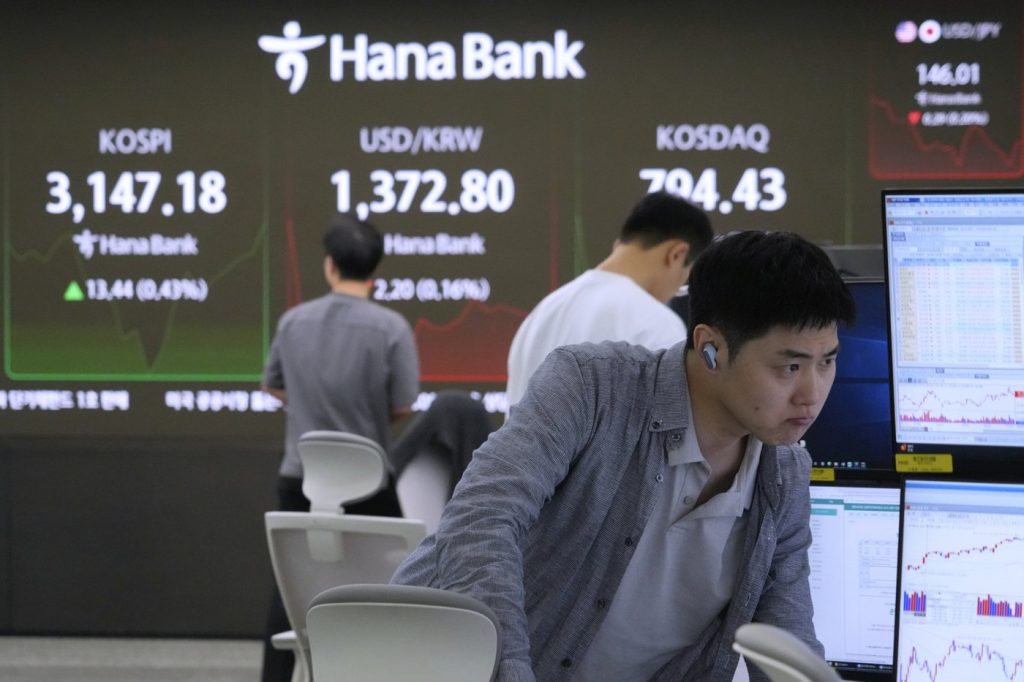Asian shares experienced a mostly positive trend on Thursday, propelled by a surge in U.S. technology stocks that saw the Nasdaq reach an all-time high. This rally significantly aided Wall Street in recovering much of the ground it lost earlier in the week.
South Korea's Kospi index rose by 1%, closing at 3,164.26. This increase followed the decision by the Bank of Korea to keep its benchmark interest rate unchanged, alongside a boost in semiconductor shares driven by Nvidia's strong performance on Wall Street.
In Japan, the Nikkei 225 fell 0.6% to 39,583.78, while Hong Kong's Hang Seng index saw a slight uptick of 0.1% to 23,926.09. The Shanghai Composite in China gained 0.4%, reaching 3,505.58, and Australia’s S&P/ASX 200 climbed by 0.6% to 8,589.70.
The U.S. dollar depreciated against the Japanese yen and euro, with oil prices also experiencing a decline. On Wall Street, the S&P 500 index improved by 0.6%, marking its first gain of the week. The index remains close to the record it achieved last week, which was fueled by a better-than-expected U.S. jobs report.
The Dow Jones Industrial Average increased by 0.5%, while the tech-heavy Nasdaq composite jumped 0.9%, surpassing its previous record from the previous Thursday. Nvidia’s shares, showcasing the thriving AI market, rose by 1.8%, pushing the company’s valuation above $4 trillion for the first time, after its share price briefly exceeded $164.
This rise in tech stocks occurred concurrently with Wall Street assessing President Donald Trump’s renewed initiative to impose higher tariffs on imports to negotiate trade agreements globally, with the negotiation window now extended to August 1.
In commodity trading, benchmark U.S. crude saw a marginal loss of 6 cents, settling at $68.32 per barrel. The international standard, Brent crude, dropped by 8 cents to $70.14 per barrel. In foreign exchange, the dollar was valued at 146.21 yen, down from 146.26 yen. The euro appreciated to $1.1736, up from $1.1723.
This rally in Asian share markets reflects growing investor confidence, particularly in the tech sector, amid a backdrop of fluctuating oil prices and ongoing trade negotiations. The positive developments in U.S. markets appear to play a critical role in influencing global investors, with particular emphasis on the semiconductor industry and tech companies.











